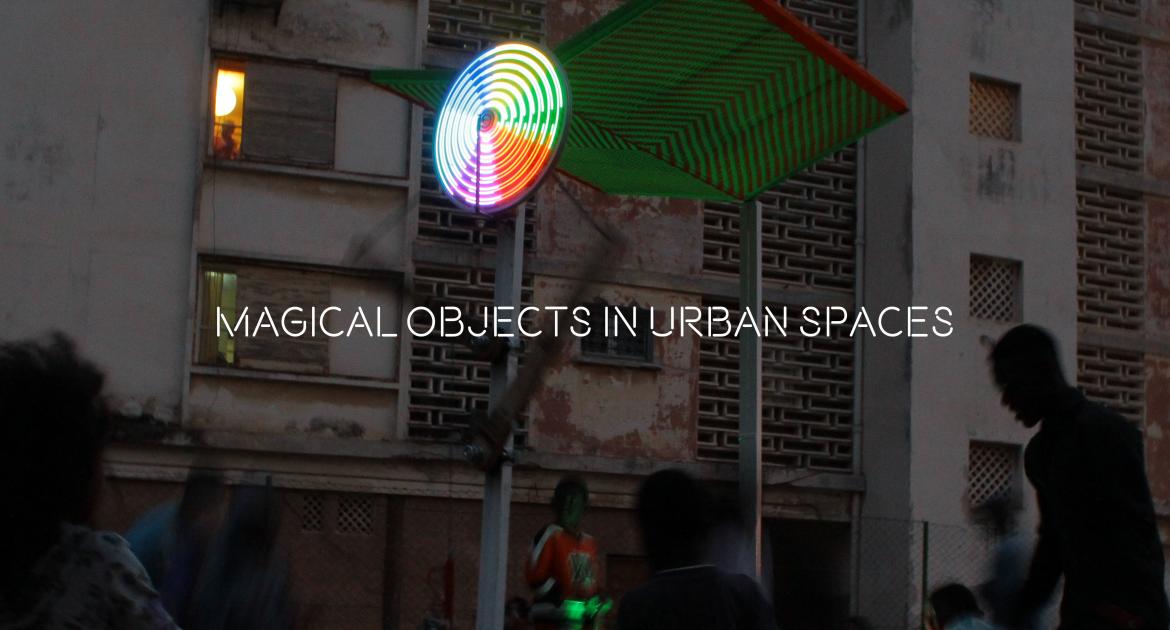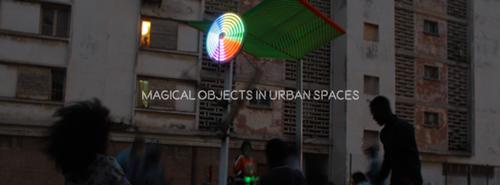Grigri Pixel 2017. Selection of citizen initiatives from the continent of Africa


After an international call for bids, although placing special emphasis on Africa, the following people from African towns have been chosen to participate in the workshop: Aderemi Adegbite from ICAF (Lagos, Nigeria), Essome Ebone Ismael from Madiba & Nature (Kribi, Cameroon), Gnikou Kodjo Afate from Woora make (Lomé, Togo) and Toure Ndèye Mané from Côté Jardin (Dakar, Senegal).
Likewise, the Grigri Pixel workshop will be accompanied by a video-mapping creation residency, carried out by the artist, Bay Dam, from VX Lab Dakar, using MapMap open source software. This residency will be held in collaboration with the AVFloss group from Medialab Prado. At the end of the Grigri Pixel workshop and coinciding with the installation of the object made for EVA, the work carried out during the video-mapping creation residency will be presented.
ICAF
Aderemi Adegbite
Iwaya Community Art Festival (ICAF Lagos), is a project conceived by the Vernacular Art-space Laboratory Foundation (VAL Foundation) to challenge the notion of art in the white cube and bring art closer to the people who are unaware and might not be able to afford to see standard exhibitions in galleries and museums, through the use of alternative and abandon spaces for site-specific installations and performances. This festival make use of the streets in Iwaya community and environs for alternative artistic interventions.
ICAF Lagos started in 2016 as one of the numerous artistic inventions by the Vernacular Art-space Laboratory Foundation (VAL Foundation), which was founded in 2014 by a group of Iwaya community literati led by the artist, Aderemi Adegbite. The aim of the Iwaya Community Art Festival is to bring local, national and, where possible, international artists to Iwaya for dialogue and discourse through visual narratives and interventions that are none conformity to any presentational style or rule.

Madiba & Nature
Essome Ebone Ismael
Madiba & Nature is a social start-up that originated in Cameroon, which uses recycled and recovered plastic waste to build ecological canoes, monuments and holiday homes for tourists. Its actions are based on circular economy with the aim of reusing and recycling all the waste that pollutes the towns and cities in Cameroon. It also proposes ecological dwellings for poor people and schools built of reused materials for the vulnerable members of the population. It even produces furniture and beds made out of plastic bottles.
The dream is to provide a system that enables the vulnerable people in Africa to make use of waste products to build a home, boat or any other object; to develop other kinds of tourism based on ecological practices that help contribute to the diversification of these people’s sources of income whilst, at the same time, fighting pollution efficiently.

Woora Make
Gnikou Kodjo Afate
Woora Make is an initiative by Afate Gnikou, the inventor of the first African-made 3D printer, the ‘W.Afate 3D printer’ built in Togo using only discarded electronic parts. Woora Make was set up in December 2016 following the launch of a new improved model of the original 3D printer, which won the prize for the ‘Best Innovation’ in the international FabLabs event, held in 2014, in Barcelona.
Woora Make is also a structure that supports programmes related to education, health, industry and development. At present it is supporting a project for opening a free MakerSpace in Togo.

Côté Jardin
Toure Ndèye Mané
Côté Jardin is an independent initiative based on Dakar and promoted by Mané Toure Ndèye, which aims to raise the issue about the problem of eating fruit in Senegal. Every year and in the corresponding season, thousands of tonnes of fruit are thrown away due to the lack of initiatives for processing and storing the fruit, but particularly because Senegalese consumers aren’t used to eating processed fruit.
There is a bar in Côté Jardin that serves fruit juices and milkshakes to offer another way of eating fruit whilst inviting people to reflect on the artistic and social practices, and local and organic food. Likewise, the area seeks to recover traditional Senegalese dishes that are dying out, made from cereals such as millet and fonio.
Côté Jardin also offers an ‘Open Office’, used as a co-working and co-creation area. Finally, a multidisciplinary art programme energises this innovating space that links food, tradition and artistic practices.
![]()



![]()



 Medialab-Matadero Madrid
Medialab-Matadero Madrid
